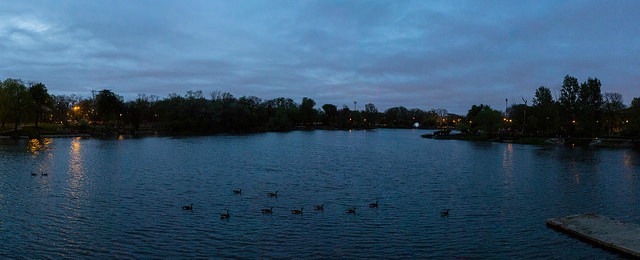Humboldt Park Beach Will Not Open This Year, But There's Hope For 2016
By Rachel Cromidas in News on Jun 11, 2015 3:35PM
The manmade beach and lagoon at Humboldt Park will not open this year, Park District officials confirmed Wednesday after weeks of speculation. But this isn't the end for the popular spot.
Officials have been talking about closing the beach permanently, citing environmental concerns and the longterm costs of keeping the beach clean and safe, which runs upwards of $1 million a year. But Humboldt Park residents and neighbors have pushed back, pressing the park district to re-open the beach with online petitions and rallies in the park, including a "beach blanket sit-in." The fight over the beach escalated a bit when the public learned that the park district had given the NFL use of Grant Park on Draft Day earlier this year, in lieu of charging them close to the $1 million needed to operate the beach.
Park district officials said they could invest in some lower-cost alternatives to the beach, such as a mini water-park of sorts, but residents weren't having it. Now officials say they have heard the community and are changing tact.
"It became clear that, in very short order, that the beach itself and the natural sustained environment of the beach was the priority of the community," Rob Rejman, director of planning and construction for the park district, told the Tribune.
The beach will stay closed this year but the park district will put the $1 million toward beach improvements and a better water circulation system in the lagoon. Of course, you can't please everyone, and some community members take issue with even that approach.
"They're talking about saving money," one community member said in a Tribune interview. "I don't think it has anything to do with making the beach more sustainable."
The lagoon was built in 1973 to serve as the city's only inland beach. After over 40 years in operation the lagoon needs to be filtered and cleaned because of a build up of bacteria from geese, dogs and other animals, according to officials.
